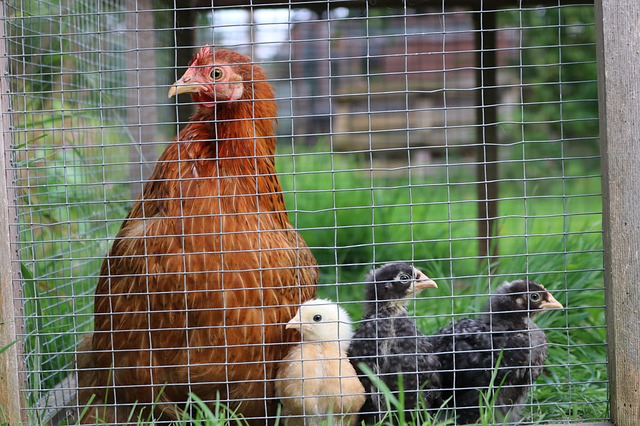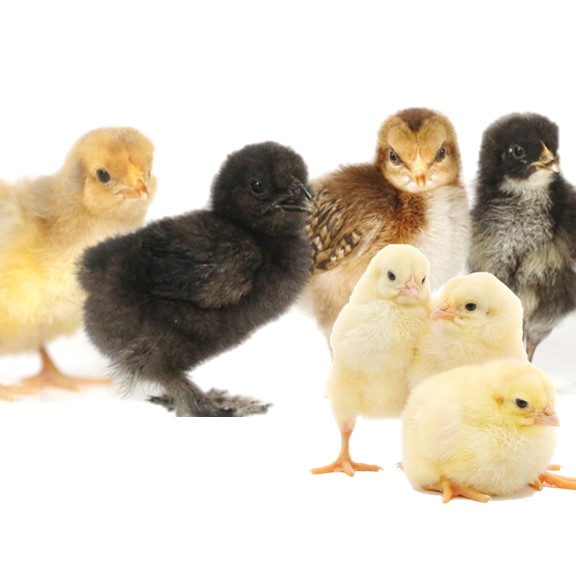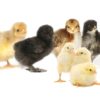Baby Chick (Mini)
Chickens need to have certain nutritional requirements met at each stage of their lives.They have varying nutritional needs as they progress through their many life stages.
Need to buy Baby Chick(Mini) ? Then our chicken laps will be your best friend. Our Baby Chick(Mini) is directly from our farm. They are healthy, rich in fiber and many other nutrients.
Chickens need to have certain nutritional requirements met at each stage of their lives.They have varying nutritional needs as they progress through their many life stages.
Feeding Baby Chicks
Have you just brought home your first-ever group of adorable baby chicks?
There is nothing more rewarding than watching your little fluff ball mature into an elegant, productive rooster or hen.
However, raising baby chicks isn’t all about cuddles and photo ops – you need to make sure you are providing your young birds with the proper nutrition so that they can grow into mature adults.
Not sure where to start?
Consider our ultimate guide to feeding baby chicks, where we will tell you all about how, what, when, where, and why you need to provide your chicks with a special diet.
Nutritional Requirements of Chickens

Chickens need to have certain nutritional requirements met at each stage of their lives.
They have varying nutritional needs as they progress through their many life stages.
All in all, though, chickens need the following foods in their diets:
Protein
Protein helps develop strong muscles and encourage good growth. Protein is most important to fast-growing broiler birds as well as to developing young chicks.
Grains
Grain is the cornerstone of your chicken’s diet. Usually, commercial feeds will include grains like wheat, oats, or corn. These grains provide all the phosphorus, B-vitamins, and whole grains (as well as more protein) that your chicks need to stay healthy.
Vitamins and Minerals
Chicken need certain vitamins, such as vitamins A, D, and B. They also need salt. In most cases, a chick starter or another type of commercial feed will provide all the vitamins your chickens need. Adult birds may also be fed leafy greens and other scraps to provide additional nutrients, too.
Fat
Chickens need fat to produce energy and essential fatty acids that are needed for certain bodily processes.
Grit
Adult birds need access to grit, as do young chicks. Birds who are allowed to free-range can find and consume their own grit.
Confined birds in a brooder or coop need grit at least once a month, but you will need to select grit that is size-appropriate.
Make sure you aren’t giving your hicks anything bigger than sand!
Calcium
You won’t need calcium in a young chick’s diet, but as your chickens mature into laying hens, they will need calcium.
This is usually provided via a layer feed, but can also be supplemented with oyster shell.
Water
Chicken need plenty of clean, fresh water.
Chickens will drink three times as much water by weight as what they eat in feed.
You will usually need about one quart for every four adult chickens. Water intake will increase as your chickens age as well as when it is hot outside.
You may also notice your birds drinking more water just before they get ready to start laying.
What to Feed Baby Chickens – From Day Olds to 8 Weeks
Types of Feed
To meet these needs, you will need to find a feed that is formulated specifically to the stage of life that your chickens are in.
Here are the three main types of feed you will find in your local farm supply store.
Starter feed
This is the type of feed needed by baby chicks.
Newly hatched chicks (until at least eight weeks of age) must be fed a balanced chick starter with a protein level that ranges between 10 and 20 percent- 18 is ideal.
These rations provide all the nutrition your young chicks will need. In a pinch, you may be able to get away with using a higher-protein starter (22 to 24 percent protein) for broilers and roasters.
If you’re raising chickens solely for egg production, this is cautioned against.
Grower feed
Grower feed can replace the chick starter feed at around ten weeks of age (eight is often acceptable as well, although you will want to work on transitioning your birds off the starter and into the grower feed between weeks eight and ten).
Gower foods usually hate about fifteen to sixteen percent protein.
If you are also raising growing game birds, like guinea fowl or ducks, with your chickens, you may be able to feed your chicks the same kind of grower feed -just keep an eye on the protein content.
Layer feed
Layer feeds are fed to chickens who are laying eggs for your consumption.
These feeds will contain sixteen percent protein, just like grower feeds, but are unique in that they contain additional calcium.
The calcium helps support shell development and should be fed either at 18 weeks or when the first egg is laid, whichever comes first. It’s important that you do not feed layer feed to developing chicks and pullets or roosters, as this can harm their kidneys.
Nationwide Delivery
Organic foods offers nationwide delivery of Baby Chick at an affordable price. Order now!
We deliver within 24 hours. Same day delivery also available (conditions applies)






Reviews
There are no reviews yet.